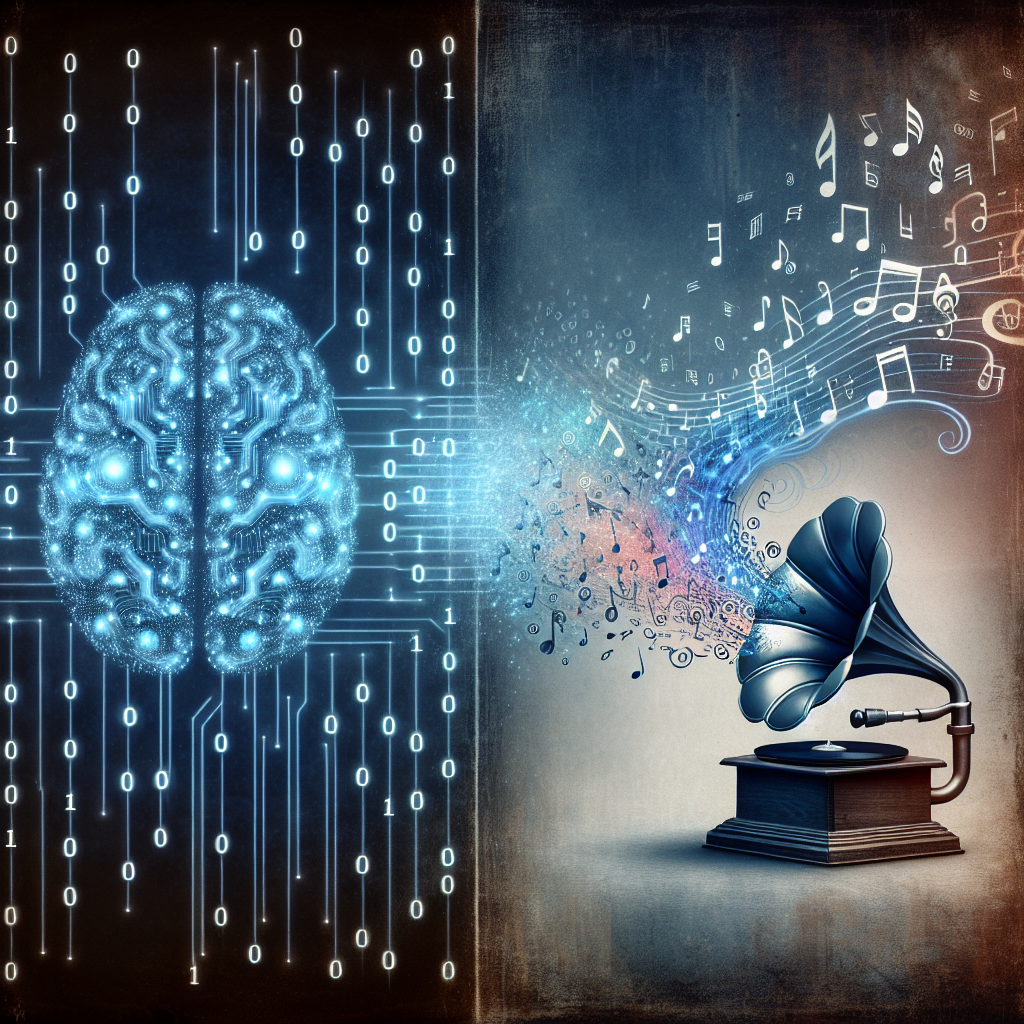Artificial Intelligence (AI) has made significant advancements in various fields, including music. With the development of machine learning algorithms, AI has the ability to analyze, compose, and even perform music. This has opened up a world of possibilities for musicians, composers, and music enthusiasts alike. In this article, we will explore the potential of AI in the realm of music and how it is revolutionizing the way we create and experience music.
AI and Music Composition
One of the most exciting applications of AI in the music industry is music composition. AI algorithms can analyze vast amounts of music data to identify patterns and trends, which can then be used to generate new compositions. This has the potential to revolutionize the way music is created, allowing composers to explore new styles and genres that they may not have considered before.
One of the most well-known examples of AI music composition is the AI-generated album “Hello World” by Taryn Southern. The album was created using AI algorithms to compose the music, with Southern providing the lyrics and vocals. The result was a unique and innovative album that showcased the potential of AI in music composition.
AI and Music Analysis
AI can also be used to analyze music in ways that were previously impossible. For example, AI algorithms can analyze audio files to identify key signatures, tempo, and even emotional content. This can be incredibly useful for music producers and artists looking to understand the structure and emotional impact of their music.
AI can also be used to analyze music trends and predict future hits. By analyzing data from streaming services, social media, and other sources, AI algorithms can identify patterns and trends in music consumption, allowing artists and record labels to make more informed decisions about their music releases.
AI and Music Performance
AI has the potential to revolutionize music performance as well. AI algorithms can be used to create virtual musicians that can perform alongside human musicians, or even autonomously. This opens up new possibilities for live performances and collaborations, allowing artists to create music in ways that were previously impossible.
One example of AI music performance is the AI-powered piano player developed by Sony CSL. The system uses AI algorithms to analyze and interpret music in real-time, allowing it to perform complex pieces with human-like expression. This technology has the potential to revolutionize the way we think about music performance, allowing for new and innovative collaborations between humans and AI.
FAQs
Q: Will AI replace human musicians?
A: While AI has the potential to create and perform music, it is unlikely to completely replace human musicians. AI can be a valuable tool for musicians and composers, helping them to explore new ideas and push the boundaries of music creation. However, human creativity and emotion are still essential elements of music that AI cannot replicate.
Q: How can musicians benefit from AI technology?
A: Musicians can benefit from AI technology in a variety of ways. AI can be used to analyze music data, identify trends, and even help with composition and performance. AI tools can also help musicians to reach new audiences and discover new opportunities for collaboration and experimentation.
Q: Is AI music considered “real” music?
A: The question of whether AI-generated music is considered “real” music is a matter of debate. While AI algorithms can create complex and innovative compositions, some argue that music created by AI lacks the emotional depth and human touch that is essential to music. Ultimately, the definition of “real” music is subjective and open to interpretation.
In conclusion, AI has the potential to revolutionize the music industry in ways we never thought possible. From composition and analysis to performance, AI is changing the way we create and experience music. While there are still many questions and challenges to overcome, the possibilities of AI in music are endless. As technology continues to evolve, we can expect to see even more exciting developments in the intersection of AI and music in the future.

